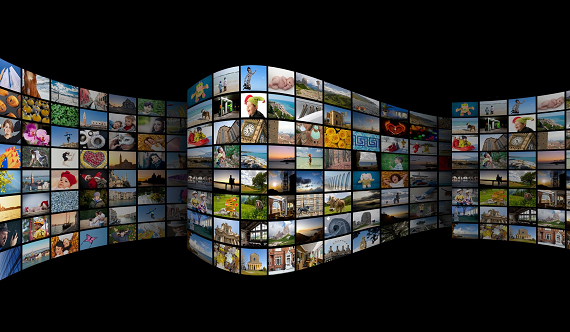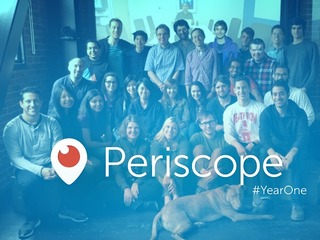
Editor’s note: Our Splash Health, Wellness and Wearables event is coming up on March 23 in San Francisco. We’ll have Mario Schlosser, Founder & CEO of Oscar Health, Brian Singerman (Partner, Founders Fund), Steve Jurvetson (Draper Fisher Jurvetson), J. Craig Venter (Human Longevity), Lynne Chou (Partner, Kleiner Perkins), Michael Dixon (Sequoia Capital), Patrick Chung (Xfund), Check out the full lineup and register for tickets before they jump! If you’re a healthcare startup and you’re interested in being part of our competition, learn more and register here.
Also, vote for your favorite healthcare startup before February 16! Vote here!
On Tuesday, the 2017 Oscar nominations were announced. There were some big snubs (no Amy Adams for Arrival? Seriously?) and surprises (I guess we’re all embracing Mel Gibson again now) but, overall, it was a good list, with some top notch movies and performances. I’m excited to see who wins.
In the nominations, there was big news for the world of online streaming: Manchester By the Sea, which was acquired and distributed by Amazon Studios last year, was included in the Best Picture category. This is the first time ever that a streaming service has been nominated for the top prize at the Oscars.
The film, about a man with a troubled past who has to come back to his hometown to take care of his nephew following the death of his brother, was also nominated for Best Actor, Best Supporting Actor, Best Supporting Actress, Best Director and Best Original Screenplay, giving it six nods in all. Amazon also picked up one other nomination, for The Salesman, an Iranian film nominated for Best Foreign Film.
A decade ago, a streaming service competing so heavily for top awards would have been unheard of; now, thanks to both Netflix and Amazon and their television shows, it’s almost commonplace. In that time, consumer behavior has changed around video, delivery has changed, and the supplier has changed. Eventually, it seems like everything we watch will be on a device that isn’t a television, and the services providing that content are becoming more powerful than the traditional networks.
Amazon getting its film into the Best Picture race is just the latest milestone in the rise of online streaming services. Here’s a timeline of how these companies came to dominate over the last decade:
- 2006 – Amazon introduces video on demand service Amazon Video and Hulu is founded
2006 was a banner year for online video streaming, as two of the top services came into existence.
Amazon Video on Demand, then known as Amazon Unbox, launched on September 7, 2006 (it would be renamed in 2011). Initially only available for users who had TiVo (do people still use TiVo?), it allowed users to rent or purchasing thousands of movies and TV shows.
Hulu, meanwhile, was founded in 2006 as a joint venture between between NBC Universal and News Corp. with AOL, Comcast, Facebook, MSN, Myspace, and Yahoo! planned as initial distribution partners. It went live in 2007.
- 2007 – Netflix launches its streaming service
Netflix, which was then a DVD-by-mail company, delivered its billionth DVD in 2007, but also begans to move away from its original core business model by introducing its video on demand service.
In the early days, the number of hours of streaming depended on the user’s individual plan, corresponding with the dollars they paid (a $5.99 plan allowed for six hours of streaming, while an $17.99 plan got 18 hours). Thankfully, the company eventually got rid of the limit.
- 2012 – Netflix debuts its first original show

While streaming services like Amazon, Hulu and Netflix began by distributing already existing content, the biggest shift came in 2012, when Netflix debuted its first original series: the now all but forgotten Lilyhammer.
First airing in January 2012, the show starred ‘Steven Van Zandt, of The Sopranos and the E Street Band, as a gangster trying to start a new life in Lillehammer, Norway. It lasted three seasons, the last of which ended in 2014.
- 2012/2013 – Amazon’s first original shows
Not to be outdone, Amazon began shopping around for its own original series in late 2012, creating pilots for six new comedy series, with viewer feedback determining which series got produced.
In November 2013, Amazon premiered its first original comedies Alpha House and Betas. Amazon offered the first three episodes of both series at once for free, with each subsequent episode released weekly thereafter for Prime members.
- 2013 – Streaming gets recognized by the Emmys
In 2013, as Netflix’s saw its original programming earn a collective 14 Emmy nominations, for shows like House of Cards, Arrested Development, and Hemlock Grove, winning one.
The next year it scored a total of 31 nominations.
- 2014 – Netflix goes to the Oscars
In 2014, Netflix received its first Oscar nomination for The Square, a documentary about the Egyptian Crisis in 2013.
It would receive another nomination in the same category the next year for Virunga, a documentary about conservation work in Virunga National Park in the Democratic Republic of Congo.
- 2014/2015 – TV goes chordless
With the rise of online streaming came the rise of the chord-cutter, or people, typically in the younger demographic, who watched all of their content online, and didn’t feel the need to have a cable subscription.
In response, a number of cable companies began offering their own streaming services. Comcast launched Stream, which allowed users to watch live TV on laptops, tablets and phones in their home, and Dish unveiled Sling TV, a Web-TV service, which will allow subscribers to watch certain cable networks on their computers for less money per month.
Individual networks also began offering their own subscription streaming services beginning in late 2014, including HBO, Showtime and CBS.
Mobile streaming revenue tripled in 2015, thanks mostly to HBO Now.
- 2015: Amazon takes the top prize at the Golden Globes

In 2015, Amazon’s Transparent became the first show to take the top prize at an award show when it won for “Best TV Series, Musical or Comedy” at the Golden Globes.
The show beat out Orange Is the New Black, from its rival Netflix in their only head-to-head contest. Netflix saw only one win during the ceremony, when Kevin Spacey picked up the award for “Best Actor in a TV Drama” for House of Cards.
Amazon repeated the feat at the next year’s Golden Globes, winning for Mozart in the Jungle.
- 2015 – Amazon’s first film
In 2015, Chi-Raq is the first film to be produced by Amazon Studios and released into theaters. Directed by Spike Lee, it’s an updated version of Lysistrata, with the focus on gang violence in Chicago.
It only makes $2.7 million at the box office.
- 2015 – Streaming overtakes live TV
A survey from consulting firm Deloitte found that 42 percent of American households are using video streaming services. It found that more than half, 56 percent, of those surveyed stream movies and TV shows, 56 percent and 53 percent respectively, while only 45 percent watch TV shows live.
By 2016, more than half of households had streaming, less than around eight years after it broke out. For comparison’s sake, there were 6,000 TV sets in 1946, and it took nine years before half of households in the U.S. had one.
Cable, which was first introduced in 1972, was in nearly 53 million households by the end of the 1980s.
- 2015/2016 – Live streaming takes off
2015 turned out to be a big year for online video. Not only is it when chord-cutting went mainstream, but it aso saw the beginning of the third wave of streaming: live video.
It began with Twitter’s acquisition of Periscope, and the launch of rival Meerkat. Periscope eventually won that battle, as Meerkat shut down in 2016, and the Twitter-owned app reached 200 million broadcasts.
Twitter went even further in 2016, with deals to broadcast content, include winning the right to stream NFL games online, as well as a partnership with CBS News to stream both the Republican and Democratic conventions over the summer. Twitter also live streamed all of the Presidential debates, which, surprisingly, brought in even larger numbers than football did.
Facebook, meanwhile, debuted Facebook Live in April, with focus on individual streaming, allowing anyone with a camera to broadcast right to the platform. Basically, the company turned itself into a television station, one where everyone can have a channel dedicated solely to themselves.
Facebook is now seeing 100 million hours of video streamed every day.
(Image source: investmentu.com)


























